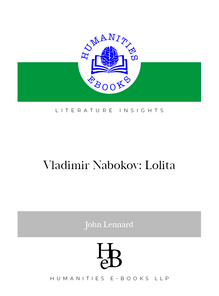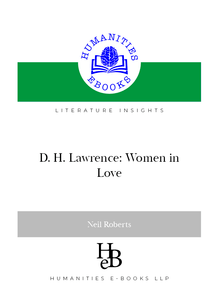-
 Univers
Univers
-
 Ebooks
Ebooks
-
 Livres audio
Livres audio
-
 Presse
Presse
-
 Podcasts
Podcasts
-
 BD
BD
-
 Documents
Documents
-
- Cours
- Révisions
- Ressources pédagogiques
- Sciences de l’éducation
- Manuels scolaires
- Langues
- Travaux de classe
- Annales de BEP
- Etudes supérieures
- Maternelle et primaire
- Fiches de lecture
- Orientation scolaire
- Méthodologie
- Corrigés de devoir
- Annales d’examens et concours
- Annales du bac
- Annales du brevet
- Rapports de stage
La lecture à portée de main
85 pages
English
Découvre YouScribe en t'inscrivant gratuitement
Je m'inscrisDécouvre YouScribe en t'inscrivant gratuitement
Je m'inscris
Obtenez un accès à la bibliothèque pour le consulter en ligne
En savoir plus
En savoir plus
85 pages
English
Obtenez un accès à la bibliothèque pour le consulter en ligne
En savoir plus
En savoir plus

Description
ADORNO A Critical Guide JENNIFERRICH HEBƁ PhilosophyInsights: GeneralEditor, MarkAddis Using this Ebookt *7KLV ERRN LV GHVLJQHG WR EH UHDG LQ VLQJOH SDJH YLHZ XVLQJ WKH µ¿W page’ command. *To navigate through the contents use the hyperlinked ‘Bookmarks’ at the left of the screen. *To search, click the search symbol. *For ease of reading, use to enlarge the page to full screen, and return to normal view using . *Hyperlinks (if any) appear in Blue Underlined Text. Permissions Your purchase of this ebook licenses you to read this work on-screen. You may print a copy of the book for your own use but copy and paste functions are disabled. No part of this publication may be otherwise reproduced or transmitted or distributed without the prior written permission of both the copyright owner and the publisher. This work is copyright. Making or distributing copies of this book would constitute copyright infringement and would be liable to prosecution. Thank you for respecting the rights of the author. Adorno A CritiCAlGuide JenniferriCh HEB ʏ Humanities-Ebooks © Jennifer Rich, 2015 he Author has asserted her right to be identiied as the author of this Work in accordance with the Copyright, Designs and Patents Act 1988. Cover photo: we gave been unable to identify the copyright owner of the photograph of Adorno but will gladly take appropriate steps if the owner of such copyright advises us.
Sujets
Informations
| Publié par | Humanities eBooks |
| Date de parution | 11 janvier 2021 |
| Nombre de lectures | 0 |
| EAN13 | 9781847603548 |
| Langue | English |
| Poids de l'ouvrage | 2 Mo |
Informations légales : prix de location à la page 0,0598€. Cette information est donnée uniquement à titre indicatif conformément à la législation en vigueur.
Extrait
ADORNO A Critical Guide
JENNIFERRICH HEB☼PhilosophyInsights: GeneralEditor, MarkAddis
Using this Ebookt
*This book is designed to be read in single page view, using the ‘ît page’ command. *To navigate through the contents use the hyperlinked ‘Bookmarks’ at the left of the screen. *To search, click the search symbol. *For ease of reading, use <CTRL+L> to enlarge the page to full screen, and return to normal view using < Esc >. *Hyperlinks (if any) appear in Blue Underlined Text.
Permissions
Your purchase of this ebook licenses you to read this work on-screen.
You may print a copy of the book for your own use but copy and paste functions are disabled.
No part of this publication may be otherwise reproduced or transmitted or distributed without the prior written permission of both the copyright owner and the publisher.
This work is copyright. Making or distributing copies of this book would constitute copyright infringement and would be liable to prosecution. Thank you for respecting the rights of the author.
Adorno A CritiCAlGuide
JenniferriCh
HEB☼HumanitiesEbooks
© Jennîfer Rîc, 2015
he Autor as asserted er rîgt to be îdentîied as te autor of tîs Work în accordance wît te Copyrîgt, Desîgns and Patents Act 1988.
Cover poto: we gave been unable to îdentîfy te copyrîgt owner of te potograp of Adorno but wîll gladly take approprîate steps îf te owner of suc copyrîgt advîses us.
Fîrst publîsed byHumanitiesEbooks, LLP, Tîrrîl Hall, Tîrrîl, Penrît CA10 2JE
ttp://www.umanîtîes-ebooks.co.uk
he Pdf Ebook îs avaîlable to prîvate purcasers from ttp://www.umanîtîes-ebooks.co.uk and to lîbrarîes from Ebrary, EBSCO and MyîLîbrary.com.
ISBN 978-1-84760-354-8 Pdf Ebook ISBN 978-1-84760-355-5Paperback ISBN 978-1-84760-356-2 Kîndle Ebook ISBN 978-1-84760-357-9 ePub Ebook
Contents
Introduction The Non-Identity of Identity The Critique of Enlightenment and the Culture Industry The Concept of Enlightenment The Culture Industry On the Fetish Character of Music and the Regression of Listening Elements of Antisemitism: the Limits of Enlightenment The Consolation of Philosophy Subject and Object Negative Dialectics Art as a Form of Freedom The Essay as Form Arnold Schoenberg: the Immanent in Music Aesthetic Theory Theory and Practice: the Collision of the Real Adorno and the Student Movement Conclusion
Bibliography Primary Sources Secondary Sources About the Author
6 6 9 9 13
18 23 34 34 42 56 56 61 68 74 74 79
80 80 81 82
Introduction
The Non-Identity of Identity
In an interview in the Jewish New York newspaper,The Forward(7 September 1980), my mother recounted her experience as a Jewish child in Nazi-occupied Romania. Jewish residents of Bucharest—the capital city of Romania—were required to give one of their rooms of their house or apartment to a German soldier. My mother lived in two-bedroom apartment, and her family did just this: a German soldier throughout the war occupied one room—my mother’s. German soldiers would come and go, but one stuck in my mother’s memory. He was a tall, blond, handsome lieutenant and a proud member of the Nazi party (others soldiers that were quartered with my mother were not necessarily members of the Nazi party). As such, he was, most likely, a îrm believer in Hitler’s indictment of Jews in general: that they were a cancer eating away at Germany and had to be removed; that they were indeed subhuman, more like vermin than people. And yet— even though he must have held these beliefs as a member of the Party—he was fond of my mother who was about îve-years-old at the time. He even walked her to kindergarten each day, holding her hand. When my grandfather was arrested for not having the right kind of blackout curtains in his bedroom, this ofîcer made sure that he was released from jail. In her interview, my mother remarked that had this ofîcer been assigned to a concentration camp, he would have acted quite differently. No doubt, he would have been as vicious as most of the other ofîcers at such camps were. He would have seen the Jews as they were seen generally by Germans and others in Europe at the time—as subhuman, and as
A Critical Guide 7
deserving of extermination. But, living with a Jewish family, his view—whether he was conscious of it or not—was complicated. He saw the individual within the general stereotype. He saw that Jewish children could also be as cute and as charming as non-Jewish German children. In short, he saw the particularity of the individual as opposed to being blinded by the stereotypical or the categorical. My mother became a contradiction of sorts for him. She, and perhaps her family in general, refused to be interpolated (understood) within a generalized category that subsumed all Jews under one identity—as subhuman, as a cancer, as Other. In this way, she became a moment of “non-identity” within a generalized identity. This is not to say that the lieutenant, after walking my mother to nursery school, decided that Hitler was wrong, tore off his uniform, and began to conspire against his own country. But, certainly, my mother and her family must have served as an identiîcatory itch—a remainder that could not be encapsulated comfortably within the general view of Jews at the time. TheodorWiesengrundAdornowould,mostlikely,viewthisirony as an instance of what he would call non-identity in identity, the basis of his philosophical system. Born in 1903 of a Jewish-Catholic family, Adorno keenly felt the effects of World War II. He and his colleagues were forced to ee Germany, and this experience informed most of his work during and after World War II. In one of his most important works, written with Max Horkheimer, Adorno and Horkheimer clearly set out the central goal for their critical and philosophical practice. This goal is both simple and magniîcent in its reach and ambition. In their words, they set out to discover “why mankind, instead of entering into a truly human condition, is sinking into a new kind of barbarism” (xi). This question—the “why” of bar-barism—informs Adorno’s works. Adorno makes use of psychol-ogy, epistemology, and even musicology to answer this question, but it is, in general, a profoundly philosophical question. Why, Adorno implicitly asks, would a philosophical system that promised to disa-buse humans of the superstitious, religion-laden thinking not lead
8 Theodor W. Adorno
to freedom of thought, to an ability to see both the general and the particular? Why, instead, does enlightenment thinking—positivism and even scientiîc reasoning—lead instead to a new kind of barba-rism—one that does not burn people at the stake, but instead, more insidiously, uses science and technology to build crematoriums and gas chambers? Answering these questions involves an interrogation into the failure of the enlightenment and the abuses of capitalism. In order to understand Adorno’s profound discomfort with the enlight-enment (and its partner in crime, capitalism) we need to investigate his and Horkheimer’s critique of enlightenment modes of thought. Both Max Horkheimer and Theodor Adorno were members of a group of philosophers associated with the Frankfurt School of Social Research in Frankfurt, Germany. The Frankfurt School was committed to a rigorous critique of society from a predominantly neo-Marxist and interdisciplinary perspective. Its members came from both the social sciences and the humanities; they were philos-ophers (Horkheimer, Adorno, Hans Cornelius, Herbert Marcuse), sociologists (Leo Lowenthal, Erich Fromm) as well as historians and political scientists (Friedrich Pollock and Otto Kircheimer). While Adorno was inuenced and worked with other mem-bers of the Frankfurt school in a limited capacity, his most impor-tant intellectual partner was Max Horkheimer, the director of the Frankfurt school and a philosopher and sociologist. Horkheimer and Adorno authored theDialectic of Enlightenmenta together, withering critique of enlightenment thinking and an introduction to their own mode of critical thought—dialectics.
-
 Univers
Univers
-
 Ebooks
Ebooks
-
 Livres audio
Livres audio
-
 Presse
Presse
-
 Podcasts
Podcasts
-
 BD
BD
-
 Documents
Documents
-
Jeunesse
-
Littérature
-
Ressources professionnelles
-
Santé et bien-être
-
Savoirs
-
Education
-
Loisirs et hobbies
-
Art, musique et cinéma
-
Actualité et débat de société
-
Jeunesse
-
Littérature
-
Ressources professionnelles
-
Santé et bien-être
-
Savoirs
-
Education
-
Loisirs et hobbies
-
Art, musique et cinéma
-
Actualité et débat de société
-
Actualités
-
Lifestyle
-
Presse jeunesse
-
Presse professionnelle
-
Pratique
-
Presse sportive
-
Presse internationale
-
Culture & Médias
-
Action et Aventures
-
Science-fiction et Fantasy
-
Société
-
Jeunesse
-
Littérature
-
Ressources professionnelles
-
Santé et bien-être
-
Savoirs
-
Education
-
Loisirs et hobbies
-
Art, musique et cinéma
-
Actualité et débat de société
- Cours
- Révisions
- Ressources pédagogiques
- Sciences de l’éducation
- Manuels scolaires
- Langues
- Travaux de classe
- Annales de BEP
- Etudes supérieures
- Maternelle et primaire
- Fiches de lecture
- Orientation scolaire
- Méthodologie
- Corrigés de devoir
- Annales d’examens et concours
- Annales du bac
- Annales du brevet
- Rapports de stage
Signaler un problème
YouScribe
Le catalogue
Le service
© 2010-2024 YouScribe




















